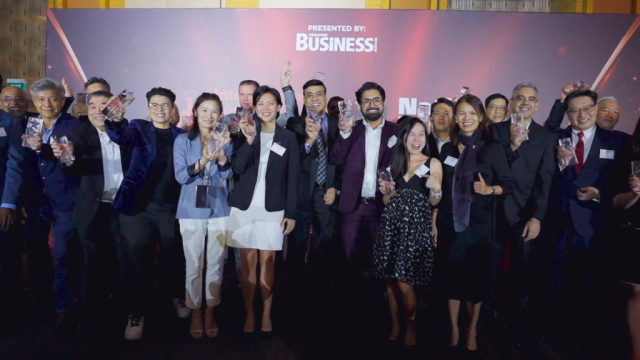Flexspaces crucial to Singapore’s thriving hybrid work culture
IWG Singapore Country Manager Darren Rogers said workplace strategy is critical for businesses to overcome rising rental costs and retain talent.
Along with the growing popularity of hybrid working, many businesses are incorporating flexspaces in their workplace strategy, especially in Singapore where rental costs are rising.
“It allows organisations to have a hybrid approach in retaining their staff, giving them choice and flexibility of where they work,” stressed IWG Singapore Country Manager Darren Rogers when interviewed by the Singapore Business Review on the advantages of hybrid work models and flexspaces.
First, Rogers explained why many companies have accepted the hybrid work model. “Giving employees access to a network of flexible locations, instead of having them make a daily commute, allows them to improve the company’s bottom line,” he said.
He said the hybrid model has enabled employees to work where they are most productive and engaged, leading to improved company performance. “In fact, when you look at what the CFOs have been saying… 82% are prioritising the hybrid part of their work measures moving forward,” Rogers said.
As for Singapore-based firms turning to flexspaces, the IWG executive noted this as an alternative solution to mitigate risks and maintain cost efficiency in view of traditional leases signed up for five- or ten-year agreements.
So, flexspaces play a crucial role in helping Singaporean businesses navigate cautious sentiment and mitigate risks, particularly when compared to traditional long-term leases.
“From a business perspective, companies are shifting away from those traditional long term leases. They want more agility and more flexibility; and that’s why they’re able to commit to a 12-month agreement,” said Rogers.
This way, businesses can adapt their strategies more effectively in the current economic climate whilst reducing overall facilities costs and overhead spending.
From an employee perspective, flexible working arrangements enhance the organisation’s positioning and offer scalability and mobility in terms of office locations.
On the other hand, landlords are recognising the demand for flexible workspace solutions and are incorporating them into their building portfolios.
“If you look at [the recent] JLL report, they predicted that the portfolio estate will rise from 30% having flexible workspaces, to 46% by 2025,” said Rogers, pointing out a significant shift in the industry.
Meanwhile, IWG Singapore also acknowledges the high housing costs that lead to the relocation of foreign talent from Singapore.
“The housing rates in Singapore have been rising at the fastest rate for the first time in 15 years,” said Rogers as he noted how flexspaces can play a crucial role in retaining foreign talent by offering greater flexibility and work-life balance.
By providing employees with a choice of where and how they work, organisations can create an appealing work environment and address the rising trend of talent relocation to neighbouring countries, he said.
When it comes to defining flexspaces, Rogers explained that they encompass any type of agreement that goes beyond traditional leasing models.
IWG, for instance, offers a global platform with over 3,500 locations where customers can flexibly use agreements ranging from one month to three years, with a 12-month contract being the most common choice.
The key difference lies in the flexibility of both the agreement and the ability to work from various locations, providing organisations and individuals with agility in their work approach.
In conclusion, Rogers encouraged business owners to explore the possibilities of hybrid work models and flexspaces, stressing that there is a product to suit every type of customer and user, from startups looking for agile access to local workspaces to multinational companies seeking a seamless global solution.
“Having the discussion and taking the first steps… that will ultimately help all organisations reduce their overhead costs, and get better employee relations and retention, through providing what the users are asking for now, particularly in Singapore,” he said.
“That’s the ability to work agilely, not return to the office five days a week, but have a solution that suits both the organisation and the employee, and both have a win-win,” he added.























 Advertise
Advertise









Commentary
Singapore Companies Eye Vietnam to Navigate Manufacturing Shifts, Green Transition, and the AI Revolution
AI is revolutionising learning: Why should educational institutions in Singapore embrace this change?
Seeking an office space in Singapore: Where do you start?